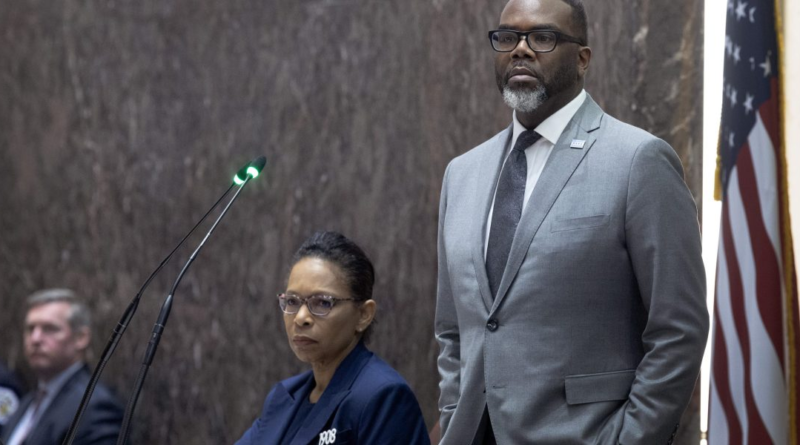Chicago's new progressive mayor dealt stinging blow as 'mansion tax' on real estate sales over $1 million struck down
Chicago Mayor Brandon Johnson’s plan to increase taxes on real estate transactions of $1 million or more was struck down by a local court, a major blow to his progressive agenda.
At a hearing on Friday, Cook County Judge Kathleen Burke ruled against a referendum question on the so-called Mansion Tax. The challenge was brought by the local chapter of the Building Owners and Managers Association, which argued the question placed on the March 19 primary election ballot was “misleading and unconstitutional.”
Johnson surprised pundits when he beat incumbent Lori Lightfoot in the mayor’s race last year, finally prevailing over rival Paul Vallas in the runoff. The progressive Democrat came to power promising to increase taxes on the rich, including a proposal to boost the real estate transfer tax for both residential and commercial buildings to help tackle homelessness.
“This referendum would be a backdoor property tax on all Chicagoans, and it is important that our elected officials not mislead voters otherwise,” Farzin Parang, BOMA’s executive director for Chicago, wrote in a statement.
A spokesman for Johnson and the city’s law department couldn’t immediately comment.
Johnson had proposed increasing one-time real estate transfer taxes on properties over $1 million, while reducing levies on transactions below that. The tax would also be graduated, with properties between $1 million and $1.5 million incurring a duty increase of $10 per every $500, and properties over that facing charges of $15 for every $500.
READ: Chicago Mansion Tax Proposal Faces Shaky Real Estate Market
“We are outraged by the fact that this small minority of wealthy real estate interests would rather spend thousands of dollars on legal fees to preserve a brutally unjust status quo than pay their fair share in taxes,” said Maxica Williams, president of the Chicago Coalition for the Homeless.
There isn’t enough time for the referendum question to be removed from the ballot, but results won’t be counted or released. The Chicago Board of Election Commissioners said it’s still evaluating its options on whether to appeal.
(The case is Building Owners and Managers Association et Al., v. Board of Election Commissioners For the City of Chicago, et al., 2024COEL00001, The Circuit Court of Cook County, Illinois.)



